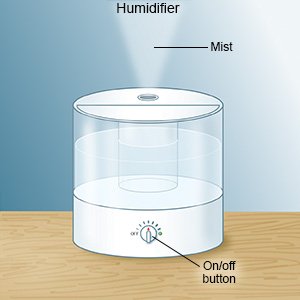Pharyngitis in Children
Medically reviewed by Drugs.com. Last updated on Apr 6, 2025.
What is pharyngitis?
Pharyngitis, or sore throat, is inflammation of the tissues and structures in your child's pharynx (throat). Pharyngitis is often caused by a virus or by bacteria. Common examples include a cold, the flu, mononucleosis (mono), and strep throat.
What are the signs and symptoms of pharyngitis?
Signs and symptoms depend on the cause of your child's pharyngitis. Your child may have any of the following:
- A sore throat or pain with swallowing
- A hoarse or raspy voice
- Cough, runny or stuffy nose, itchy or watery eyes
- A rash
- Fever, headache, or feeling more tired than usual
- Whitish-yellow patches on the back of the throat
- Tender, swollen lumps on the sides of the neck
- Ear pain
- Nausea, vomiting, diarrhea, or stomach pain
How is pharyngitis diagnosed?
Your child's healthcare provider will ask about your child's symptoms. Your child's provider may look into your child's throat and feel the sides of his or her neck and jaw. Your child may need any of the following:
- A throat culture may show which germ is causing your child's sore throat. A cotton swab is rubbed against the back of your child's throat.
- Blood tests may be used to show if another medical condition is causing your child's sore throat.
How is pharyngitis treated?
Viral pharyngitis will go away on its own without treatment. Your child's sore throat should start to feel better in 3 to 5 days. Medicines to decrease pain and swelling or treat a bacterial infection may be given.
How can I manage my child's pharyngitis?
- Have your child rest. Rest will help your child get better.
- Give your child more liquids as directed. Liquids will help prevent dehydration. Liquids that help prevent dehydration include water, fruit juice, and broth. Do not give your child liquids that contain caffeine. Caffeine can increase your child's risk for dehydration. Ask your child's healthcare provider how much liquid to give your child each day.
- Soothe your child's throat. If your child can gargle, give him or her ¼ of a teaspoon of salt mixed with 1 cup of warm water to gargle. If your child is 12 years or older, give him or her throat lozenges to help decrease throat pain.
- Use a cool mist humidifier. This will add moisture to the air and make it easier for your child to breathe. This may also help decrease your child's cough.

How can I help prevent the spread of pharyngitis?
Wash your hands and your child's hands often. Keep your child away from other people while he or she is still contagious. Ask your child's healthcare provider how long your child is contagious. Do not let your child share food or drinks. Do not let your child share toys or pacifiers. Wash these items with soap and hot water.
 |
When should my child return to school or daycare?
Ask your child's provider when it is okay for your child to return to school or daycare. Your child may be able to return when his or her symptoms go away.
When should I seek immediate care?
- Your child suddenly has trouble breathing or turns blue.
- Your child has swelling or pain in his or her jaw.
- Your child has voice changes, or it is hard to understand his or her speech.
- Your child has a stiff neck.
- Your child is urinating less than usual or has fewer wet diapers than usual.
- Your child has increased weakness or tiredness.
- Your child has pain on one side of the throat that is much worse than the other side.
When should I call my child's doctor?
- Your child's symptoms return, do not get better, or get worse.
- Your child has a rash or a red, swollen tongue.
- Your child has new ear pain, headaches, or pain around his or her eyes.
- You have questions or concerns about your child's condition or care.
Care Agreement
You have the right to help plan your child's care. Learn about your child's health condition and how it may be treated. Discuss treatment options with your child's healthcare providers to decide what care you want for your child. The above information is an educational aid only. It is not intended as medical advice for individual conditions or treatments. Talk to your doctor, nurse or pharmacist before following any medical regimen to see if it is safe and effective for you.© Copyright Merative 2025 Information is for End User's use only and may not be sold, redistributed or otherwise used for commercial purposes.
Learn more about Pharyngitis
Treatment options
Care guides
Further information
Always consult your healthcare provider to ensure the information displayed on this page applies to your personal circumstances.
